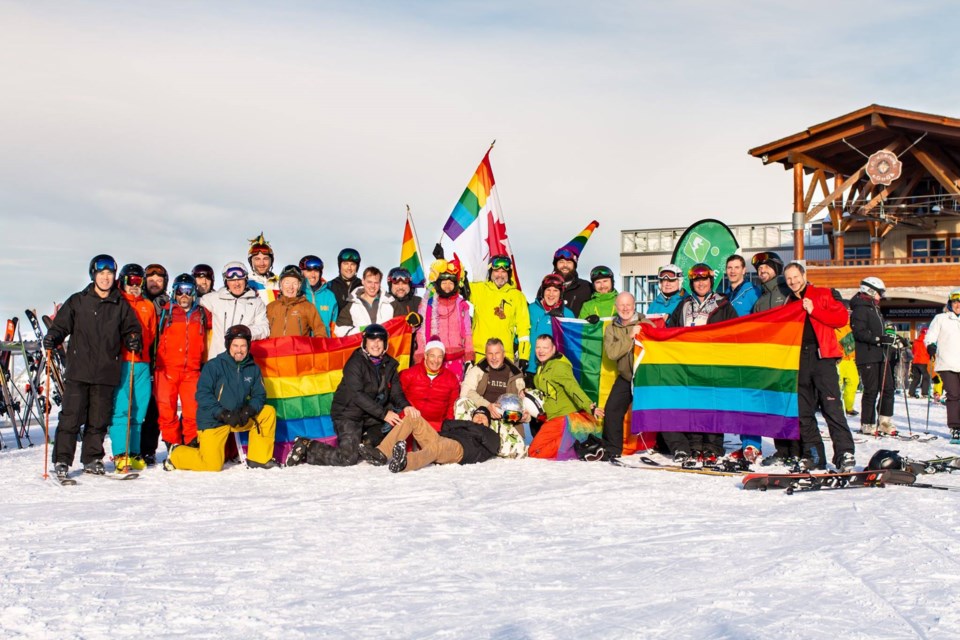Canada’s LGBT+ Chamber of Commerce is trying to get the message out that the ever resilient LGBT+ travel market should be top of mind for businesses looking to bounce back during the pandemic—and it has one of Whistler’s foremost diversity advocates helping spread the word.
“It’s a great time for our partners to make sure they have all the training in place and use this opportunity to make sure their product is warm and welcoming to everybody—and they’ll stand to benefit,” said LGBT+ travel consultant Dean Nelson, formerly of the Whistler Pride & Ski Festival, who is one of the program’s facilitators.
Working with Tourism HR Canada, Nelson and the LGBT+ chamber, with support from the Canadian government, have launched free online diversity and inclusion workshops and LGBT+ market-ready seminars for tourism operators and their staff, making them eligible for a destination audit and new accreditation program that would publicly recognize their efforts.
“Diversity inclusion learning is really active learning, constantly evolving and changing,” said Dale McDermott, COO of Canada’s LGBT Chamber of Commerce. “From our research, we know that in addition of the likes of cost being a factor for travel and access to more cultural activities, the No. 1 item, actually, for LGBT+ travellers is safety.”
Nelson said the digital training is a way for tourism operators, destination marketing organizations and other travel partners to stay up to date on the right approach towards attracting the LGBT+ market, particularly for international visitors looking to Canada as a more-welcoming, inclusive travel destination.
“We’re really fortunate in Canada [as], for the most part, most of our communities from coast to coast to coast are pretty accepting. But this is giving the tools to some of our travel partners that might not be aware of [the] language,” he said. “Just being more much aware of having more-inclusive language opens it up for people to feel more welcome and more accepted. It might not be a big deal for Canadians, but for our international visitors coming to Canada, all of a sudden Canada becomes a sexy destination for people to explore because they feel they can be themselves in this beautiful country.”
New national research has also shown the LGBT+ market is primed to travel again, with 90 per cent of respondents polled indicating their intent to travel domestically this year. Pre-pandemic, the LGBT+ tourist spent an average of $1,800 a trip, roughly seven times the Canadian average.
“I know from working with Whistler Pride over the years and some of our gay cruise partners, the boys and the girls, they spend a lot of money,” Nelson explained. “Our trans folk are doing way more travel than they have in previous decades as well because they feel safe enough to actually go out and be part of that community.
“The LGBT+ community has a lot of spending power and we know that they like to go out and enjoy life to its fullest—because we’ve worked hard to get there.”
Nelson added that it’s time for businesses and organizations across Canada to “walk the talk” when it comes to inclusivity—and the training and accreditation program is one surefire way to put those intentions into practice.
“Putting a rainbow sticker isn’t good enough anymore. You really need to walk the talk, show up and be there,” he said.
Canada’s LGBT+ Chamber of Commerce is hosting two online diversity and inclusions workshops for Western Canada on Oct. 1 and 20. Visit cglcc.ca/workshops for details.




